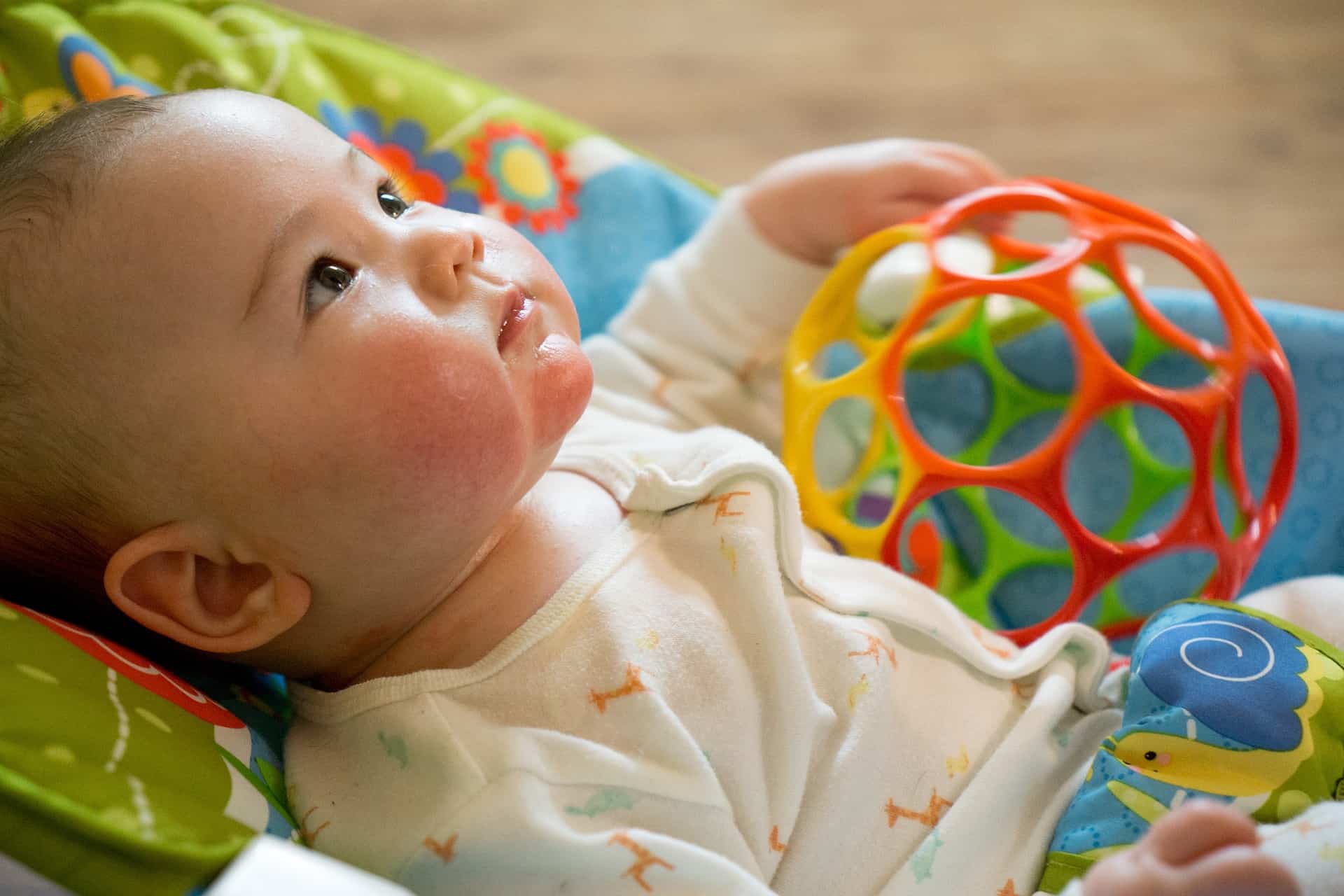I have already exhausted the subject of the importance of early intervention in my post that you can read HERE. You already know that any disturbing behaviour of your baby should be consulted and if necessary, you should act as soon as possible. So what to pay attention to? What behaviour should you be sensitive to? Since I prefer short and substantive messages, let’s get straight to the point.
The first sign that a baby’s development may not be correct is frequent and excessive crying accompanied by great anxiety of the baby, excessive anxiety reactions – so-called Moro reflex – during daily activities, difficulty in falling asleep as well as sleeping proper, problems with feeding the baby (baby tends to get upset and nervous during eating, is unable to grasp the teat/nipple, to coordinate suction and swallowing).
To make things worse (because who said that being a parent is easy;)), parents should also be disturbed if their babies are too quiet/languid, have no appetite (baby has no sucking reflex, feeding it takes a long time), not interested in human faces/toys.
In the early months of the child’s life, visits to the paediatrician are quite common, so it is good to report any of these behaviours if present in the child. Do not expect and do not wait until the paediatrician notices it!! It is you who spends most of your time with your child and you know how it behaves on a daily basis. The doctor will give you about 15-20 minutes attention during the visit, which they will spend on the examination and other things. It is simply not possible to carry out an accurate observation of the baby in such a short time.
A specialist?! – When? What kind?
If the first warning signals do not cease and new abnormal behaviours appear, which I will describe in a moment, it is necessary to consult a specialist. Usually you will be referred to a specific specialist by the paediatrician, but it is worth knowing that the following symptoms may or should be consulted with several specialists. Each of them will look at the child from another point of view – a neurologist will determine the cause of the behaviour and the need for diagnostic tests; a rehabilitation physician will determine the rehabilitation needs of the child, a physiotherapist will choose the appropriate method of working with the child and will lead the therapy.
What should be consulted with the specialist?
If you notice the following behaviour in your child:
- persistent asymmetrical orientation in one direction;
- behaviours suggesting more freedom of movement of one hand or foot as compared to the other;
- stretching the body and bending the head backward;
- body too limp, stretched abdominal muscles;
- weak or complete lack of following a toy with his/her eyes after 3 months;
- lack of raising the head above the ground after 1 month of life;
- poor or no propping on forearms after 3 months;
- open mouth, difficulty in feeding, swallowing food;
- abundant regurgitation after meals;
- intense abdominal colic;
- hypersensitivity, anxiety, low need for sleep;
- shivering of the chin, limbs;
- convulsions, apnoea, unconsciousness.
- lying with legs abducted very wide;
- leg straightening and stretching, ballet foot setting;
- too tight upper limb tension (visible during dressing), tightening fists too much;
I will repeat it once again – early noticed disturbances give a better chance of a quick intervention. Do not neglect, but ask and check. Quickly started treatment gives you a chance to correct or minimize your child’s abnormalities.




